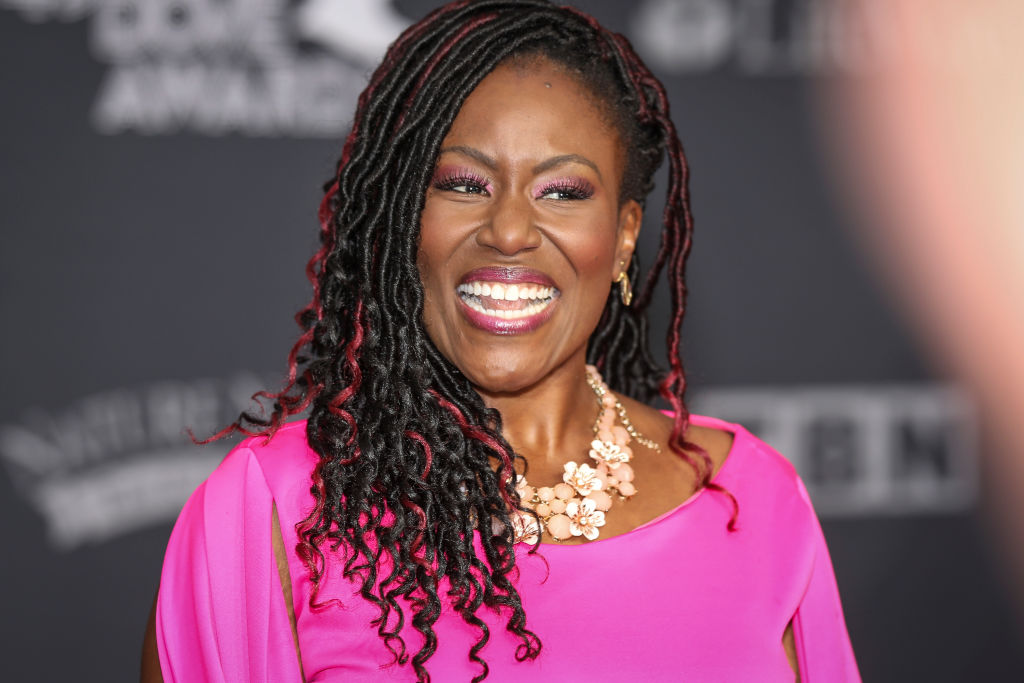June is Men’s Health Month and today’s Get Well Wednesday is part of a Radio One initiative to represent for the brothers. Far too many studies show that African-American men are near the top of the leaderboard for deaths due to heart disease, cancer and diabetes. And when it comes to being proactive about our health, they’re near the bottom of the list.
WHY IS IT SO DIFFICULT TO GET MEN TO GO TO THE DOCTOR AND HOW CAN THEIR LOVED ONES GET THEM THERE?
- Sometimes men are experiencing issues that they may feel uncomfortable talking with their doctor about
- Some are not in the habit of seeing the doctor regularly
- Some may not know the importance of regular screenings
Ways to get your man to the doctor:
- Make sure he has a doctor he likes and is comfortable with
- Make regular appointments- schedule the next appointment before leaving the office so your man knows when he should follow-up
- Make a list of health concerns to talk with the doc about
- Go with your man to the doctor
WHAT ARE SOME THINGS TO CONSIDER WHEN CHOOSING A DOCTOR?
- How comfortable you are with the doctor- the rapport you have
- If you feel you can be open and honest with your doc
- If you feel that your doctor truly listens to your concerns and how you are feeling
- It’s important to feel as though you have a partner in your healthcare
WHAT ARE SOME KEY TESTS MEN NEED AT DIFFERENT STAGES OF LIFE?
20’S AND 30’S
- Yearly doctor’s appointments
- Regular STD testing if you are sexually active, HIV screen
- Learn your family history to know what conditions you might be at risk for
- Screening for blood pressure, cholesterol and diabetes if you are at high risk
- Smoking cessation
- Exercise
- Eating a healthy diet
- Vaccines: Flu shot, Tetanus
- Regular eye and dental exams
40’S AND 50’S
- Colonoscopy at age 45 years old for African-Americans (45 or 50 for others at average risk), or earlier
- Prostate cancer screening – USPSTF says to talk to your doctor about the pros/cons of screening between ages 55-69. If you have a family history, you may need to be screened earlier
- Screening for blood pressure, cholesterol and diabetes
- Screening for Hep C, receive vaccines
- Regular eye and dental exams
- Smoking cessation
- Exercise
- Eating a healthy diet
60’S AND 70’S
- Vaccinations- pneumonia, shingles, flu shots
- Prostate Cancer screening – USPSTF says to talk to your doctor about the pros/cons of screening between ages 55-69. If you have a family history, you may need to be screened earlier
- Regular Eye and dental exams
- Smoking cessation
- Exercise
- Eating a healthy diet
IS ERECTILE DYSFUNCTION INEVITABLE? CAN IT BE AVOIDED OR DELAYED?
It is not necessary inevitable. Erectile dysfunction can be caused by a number of underlying conditions. For some men, low testosterone or other hormonal changes affect erectile dysfunction. For other men, medications may cause issues with erectile function. For some, underlying conditions such as diabetes and heart disease affect erectile function.
MEN OFTEN IGNORE SIGNS OF STRESS, ANXIETY AND DEPRESSION. IS THIS SOMETHING A DOCTOR CAN EASILY DIAGNOSE?
YES! This is! Men should definitely talk about how you are feeling emotionally with your doctor how you feel mentally can ultimately affect how you feel physically.
ARE HEART ATTACKS, DIABETES, HIGH BLOOD PRESSURE, AND HIGH CHOLESTEROL HEREDITARY. HOW CAN A PERSON TELL IF THEY’RE AT RISK FOR THESE DISEASES?
Often, heart disease, high blood pressure, etc are hereditary. This is why it is really important to know your family history and to get into the office to be screened for these conditions early on. With proper lifestyle changes and with screening and other interventions, these conditions can often be managed quite well.
TEXT YOUR QUESTIONS TO 646464 AND DR. CAUDLE WILL ANSWER THEM ON BLACK AMERICAWEB.COM
Dr. Jen Caudle is a board-certified family physician and associate professor at Rowan University. She frequently appears as a health expert on the Dr. Oz Show, Fox News, CNN, HLN and others.
The Latest:
- Join the LoveErica.com Community: Music, Ministry and Motivation
- A Winning Game Plan | Dr. Willie Jolley
- Multiple States Working To Ban Popular Snacks Linked To Cancer
- Marvin Sapp To Record 16th Album Live In Chicago
- Frank Ski Drops Earth Day Song “Amazon Sunrise (Lovely Day),” Announces Winners Of Planet Green Science Contest
- Freestyle to Grammy to Tour: Tye Tribbett’s ‘Only One Night Tho’
- Prayer Garden: Why You Need One and How to Create It
- Don’t Panic…Pivot | Dr. Willie Jolley
- Jennifer Hudson Reflects Her ‘American Idol’ Elimination From 20 Years Ago: ‘From Idol to EGOT Baby!’
- H.E.R. Recently Had A 7-Hour Hair Transformation On Social Media – See Her Beautiful Results
- Star Studded Premier of the Wiz Revival on Broadway: An Ode to Black Excellence
How Men Can Safeguard Their Health was originally published on blackamericaweb.com













